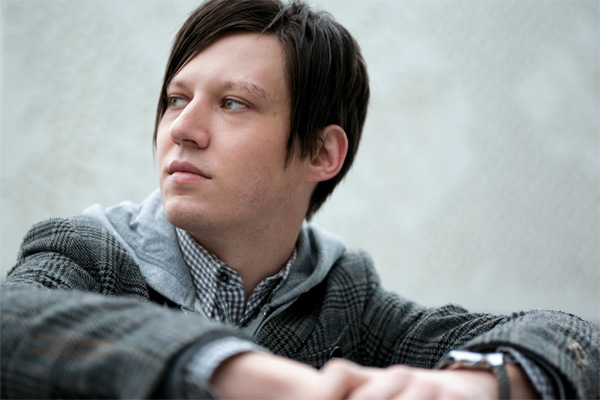One of rock music’s greatest fallacies was convincing everyone that it heralded the start of a new world order. So long has been spent analysing ‘that’ pivotal moment – call it Beatlemania in 1963, punk in 1976, MTV in 1981 – that we forget the cultural continuum that binds them all. We write the dates down for posterity to uphold the notion that we’re more than wide-eyed receptacles floating through time, waiting to be diverted. What did we learn from rock music? That music doesn’t have be played sitting down?
When pop ‘broke’ in the sixties, it essentially rebranded popular entertainment to make money off a new, financially enfranchised generation of teenagers, and it has effectively repeated the trick numerous times ever since. It squared up to classical music, sheet music, old standards pumped sausage-like out of Tin Pan Alley, and offered a new way sans violins. […pumped sausage-like out of Denmark Street, Ed]
For decades the dividing line was written in the sand, and rock music shunned classical orchestration. Those who employed an orchestra did so as a mark of experimentalism, or in the hope of adding gravitas to cheese whizz anthems.
Recently, things have started to change. This decade the barricades have been dismantled as bands like The Arcade Fire, Beirut, The National and others have started employing classical musicians as naturally as they plug in their electric guitars. The continuum made itself known.
Get Well Soon, a group assembled by German musician Konstantin Gropper, belong in the same bracket as the aforementioned bands. With second album, Vexations, Gropper hasn’t only written for full orchestra, he’s gone one step further and included numerous literary references – to Seneca, Marx and Homer, among others. In Gropper’s own words, “Why not?” And yet, plenty of people have been offended by this perceived ‘intellectualisation’ of rock music. It messes with their markers, you see…
Vexations is the name of a piece of music by Erik Satie. Why did you name your album that?
Konstantin Gropper: I liked the name, but it’s also a very interesting piece of music. It’s repeated 860 times. I think maybe it was Satie’s joke, but it’s also an interesting picture of a life. Also on the album, in some parts you can hear [the theme from] Vexations. The verb is not really in use anymore, it’s anachronistic, so I picked it up and made it my own art word and filled it with my own meaning.
Is that how you feel about your music, that it’s art?
KG: I don’t think it’s up to me to say what people think of my music but often I take pieces from other art contexts and put it into a new context, that’s how I work. So I picked up that title from Satie and put it in another context. You could say it’s a collage or patchwork; arts and crafts.
It sounds like you’re the composer of this work in the very traditional sense, was that the product of growing up as a classical musician?
KG: The way that I write music isn’t very classical. I don’t sit down with a feather and write the sheet music, I’m kind of an electro kid, if you want. It’s just that I grew up with classical music and I still include this kind of sound in my work, as a reference to my past. I still like the warmth of classical instruments and music, but I wouldn’t consider myself as a classical composer. Composing classically nowadays is very, very complex, I don’t think I could stand the critique. It’s too theoretical for me. I’m a bit more emotional as I writer, I guess.
It does sound quite an emotional thing, your music. It seems to be imbued with a sense of unease – is that a personal thing?
KG: I realised that when it comes to writing I go into this worried state. To me it feels very natural. Art to me is expressing your worry. You put yourself into a critical perspective towards the world and think about it. Not all of the time, but often in art, worry is a great motive. It’s my therapy, to write it down.
Did you not ever want to rebel against your upbringing, your dad being a music teacher?
KG: I don’t know. No, maybe he did a good job of raising me with music rather than forcing it upon me. I think maybe my father would think that becoming something else, a teacher or something, would be the safe way, so he’s maybe the one worrying about me being a musician, not the other way round.
How does he feel about what you do?
KG: At the moment it’s going good so he’s happy with that, and he likes the music that I do again, because he can maybe find his own influences in it. At times he had a hard time with the music that I did, when I played in punk bands and stuff. He had a hard time going to the concerts, but now he’s finding his own references in the music. So I guess he’s okay with it, I don’t know.
There are quite a few philosophical themes on this album. Do you think that there’s a place for philosophy in rock music?
KG: Not sure.
Was that an experiment?
KG: Yep, definitely. As I said this state I go into when writing is always a bit philosophical. The experiment definitely was to name the influence and the quotes and saying that I’m trying to include these references in a pop context. I don’t know if it works. Some people are interested in that and they really deal with these topics, and others say “What the fuck is that, why does he want to put these topics in pop music? It’s really uncool, it’s got nothing to do with fashion.” So it’s very polar.
It wasn’t that I thought there should be some intellect in pop music or pedagogic in some way, it’s just things I was interested in to be honest. But now as I see that some people get really offended by this, that’s really worrying.
Worrying?
KG: It’s worrying that apparently you can’t mix philosophy in pop music. Why not? People seem to be complaining more about these kind of topics than about no topics at all. No one’s complaining about the lyrics of the Black Eyed Peas. But I don’t know.
It’s nice to provoke a reaction.
KG: It wasn’t my plan to provoke a really polar reaction, but it’s nice, that’s what you should do with art.
Would you try it again?
KG: Well, not the same thing, but I like experimental processes. I don’t know what I’m going to do next. At the moment my creativity is kind of gone, so I’m looking forward to touring and having new thoughts and new experiences and seeing what’s going on.
Tell me a little bit about how it is as a German band trying to break into an international market.
KG: Um, it just came pretty naturally. We just started out with Germany and then we just kind of toured other countries and it seems to be working. There were no bridges for us, we felt welcome. That’s one thing I never worry about, going to other countries, because it just came along like this.
That isn’t the reason that you write in English?
KG: No, no, no. When I started to write lyrics I was listening to English and American acts and I wanted to sound like them, and then it became my routine. I’ve tried to write in German several times and it never worked. German is a very hard language, very rough, and it never really worked with the melodies. The times that I tried to work in German I could never develop a certain melody or it always ended up in speech singing, it never worked, so I stopped trying.
I find it kind of interesting that you feel you can express yourself better in a language that isn’t your mother tongue.
KG: I know, it is strange isn’t it! Maybe in the same way that for a long time all of the operas were sung in Italian, that maybe it goes better with the language. I can’t really explain it, I can just say that when I tried to write it German it didn’t work with my music. That I can now tour the whole of Europe is a fantastic side-effect but it was not the motivation. It was not.
Would you like to break in the UK? I have German friend who tells me you’re quite a personality in Germany already, so is it important to you to branch out overseas?
KG: Important… well, of course it’s nice, but I don’t think you can force it or anything. I’m not that pushy concerning that. I have a lot of people doing all the business for me. I’m doing what I do and if people like it, they like it, if not, they don’t. You can’t force it. I’ve tried but I don’t see that there should necessarily be borders to anything. Why should there be? I don’t know why so few German acts try to tour abroad. That’s a strange phenomenon, a lot of bands don’t even try to. I guess they’re afraid or something. I don’t know, the German music scene doesn’t have the best reputation abroad, to be honest. What German acts do you know?
Kraftwerk.
KG: Well, okay, I mean the current scene.
Just you.
KG: Well, you see, that’s not a lot. Maybe Rammstein as well.
I probably know more than I know, if you know what I mean.
KG: There’s this kind of techno-dancefloor stuff that comes from Germany but apart from that I don’t think music is the highest export from Germany. We did better with cars.
Conversely, do you hear a lot of British and American bands in Germany?
KG: Yes. All of them. In our globalised world the export countries for music are definitely the UK and the US, the biggest ones. I’m sure about that.
And you never thought about moving to the UK or the US to pursue what you do?
KG: Well I lived in Ireland for a while, but that was just for studying, I never thought about really moving there. Maybe I will. As I said, I don’t see that there should be any boundaries or anything, if there’s an opportunity then I might move.
Maybe you’ll stumble across somewhere on your tour in the next few weeks.
KG: Yes, and say, “this is the place where I want to stay.” And then never come back.



